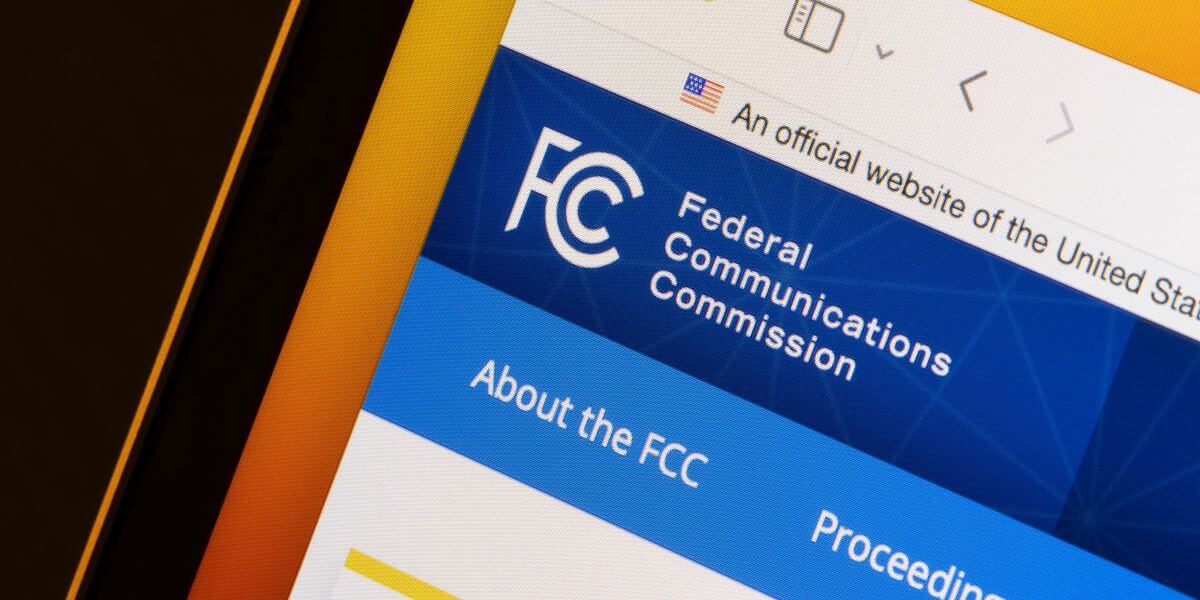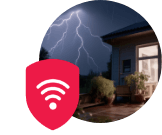How to File an FCC or FTC Complaint About Your Internet Provider
Table of Contents
Internet issues aren’t uncommon, but if you’ve contacted your internet service provider (ISP) and still cannot get a resolution to the problem you’re having, you may need to file an internet provider complaint with federal regulators.
When your relationship with your internet service provider goes south — whether due to billing disputes, service quality issues, or deceptive practices — filing an internet provider complaint with the Federal Communications Commission (FCC) [1] or Federal Trade Commission (FTC) can provide a path to resolution. These federal agencies offer consumers recourse when direct negotiations with internet providers fail to address legitimate grievances.
Before escalating to federal regulators, both the FCC and FTC expect you to attempt resolving issues directly with your provider first. This initial step demonstrates good faith effort and strengthens your case when filing formal complaints. However, when those conversations prove fruitless, government intervention becomes your next potentially viable option.
Understanding the Difference Between FCC and FTC Complaints
The FCC and FTC serve different but complementary roles in consumer protection. The FCC specifically regulates the telecommunications industry, making it your primary avenue for most internet service disputes. The FTC takes a broader approach, focusing on preventing anticompetitive business practices and deceptive advertising across all industries.
For most internet provider complaints, the FCC offers your best chance of resolution since telecommunications falls squarely within their regulatory domain. However, certain issues like false advertising, fraudulent billing practices, or debt collection harassment fall more under FTC jurisdiction.

What to Do Before Filing Your Complaint
Contact your internet provider’s customer service department first and document every interaction. Keep detailed records of phone calls, including dates, times, representative names, and conversation summaries. Save all email correspondence and take screenshots of online account issues. This documentation becomes important evidence when presenting your case to federal regulators.
Many internet providers offer escalation paths through retention departments or customer advocacy teams that may resolve disputes without regulatory intervention. When comparing internet providers or researching the best internet in your area, consider reading customer service reviews alongside technical specifications and internet prices.
How to File an FCC Complaint
The FCC Consumer Inquiries and Complaints Center [3] provides the most efficient path for filing complaints. The online portal walks you through the process step-by-step, ensuring you provide all necessary information for effective case processing.
When filing an FCC complaint, include your complete contact information, detailed description of the issue, steps you’ve taken to resolve it with your provider, and any supporting documentation. The more specific and factual your complaint, the better chance you have of achieving a favorable outcome. You can contact the FCC through three methods:
- Online Portal: FCC Consumer Inquiries and Complaints Center (recommended)
- Phone: 1-888-CALL-FCC (1-888-225-5322)
- Mail: Federal Communications Commission, Consumer and Governmental Affairs Bureau, Consumer Inquiries and Complaints Division, 45 L Street NE, Washington, DC 20554
Once you file a complaint through the FCC’s Consumer Complaint Center, the FCC forwards the complaint to your provider, which then has 30 days to respond directly to you and to the FCC. After you receive the provider’s response, you may reply directly to the FCC if you’re not satisfied. The FCC reviews all responses but does not guarantee a resolution or mediation — it facilitates the exchange of information and monitors compliance. There is no formal requirement for an ongoing dialogue or for the provider to respond to your rebuttal, although they may do so.
Strengthening Your FCC Complaint
Documentation proves critical to successful internet provider complaints. Beyond basic communication records, gather service agreements, billing statements showing disputed charges, speed test results demonstrating performance issues, and any promotional materials that may have been misleading.
Approach the situation professionally, even when frustrated. Emotional language or aggressive tone can undermine your credibility with both your provider and FCC reviewers. Stick to facts, present evidence clearly, and maintain courteous communication throughout the process.
Follow up promptly on all correspondence. Many consumers report their cases being closed due to lack of response, so stay engaged throughout the resolution process. When you receive responses from your provider, review them carefully and respond quickly if you disagree with their proposed solutions.

Issues Outside FCC Jurisdiction
The FCC cannot assist with false advertising claims, general deceptive business practices, scams, or debt collection issues. These problems fall under FTC authority and should be directed there instead.
Additionally, several service-related issues are best handled at the state level through public utility commissions, including wire burial requests, local phone service problems, stand-alone satellite or cable TV billing disputes, and utility services outside telecommunications.
Filing FTC Complaints
For issues involving deceptive advertising, fraudulent billing practices, or anticompetitive behavior, file your complaint through the FTC Complaint Portal or call 1-877-382-4357. The FTC’s online system guides you through their complaint process, similar to the FCC portal.
Like FCC complaints, FTC submissions require detailed information about your issue, supporting documentation, and evidence of attempts to resolve the matter directly with your provider. The FTC uses complaint data to identify patterns of abuse and may take enforcement action against companies engaging in systematic consumer harm.
When Regulatory Complaints Don’t Work
If federal complaints fail to resolve your dispute, consider alternative approaches. Research whether switching to different internet providers is a viable option in your area. Use internet comparison tools to evaluate available services, compare internet plans, and analyze internet prices before making changes.
Sometimes the threat of switching providers motivates better customer service responses. When researching the best internet providers in your market, use that information as leverage in negotiations with your current provider.
For widespread or systemic issues affecting multiple consumers, consider contacting your congressional representatives. Lawmakers sometimes intervene in telecommunications policy matters, and constituent complaints can influence regulatory priorities.

Common Complaint Scenarios
Hidden fees and unexpected charges are frequent sources of internet provider complaints. When providers add equipment rental fees, data overage charges, or early termination fees without clear disclosure, consumers have legitimate grounds for FCC complaints.
Service quality issues, including speeds significantly below advertised levels or frequent outages, also warrant regulatory attention. However, providers typically advertise speeds “up to" maximum levels, giving them some protection against minor performance variations.
Billing disputes, especially involving services never requested or authorized, constitute serious violations that both the FCC and FTC take seriously. Document any unauthorized charges carefully and maintain records of all communications regarding billing corrections.
Resolving Your Internet Provider Complaint Effectively
Filing an internet provider complaint with federal regulators provides important consumer protection when direct negotiations fail. The FCC handles most telecommunications-related issues, while the FTC addresses broader business practice violations. Success depends on thorough documentation, professional communication, and persistent follow-up throughout the resolution process.
Before filing complaints, compare internet providers in your area to understand your alternatives. Sometimes the best resolution involves switching to better service providers rather than fighting prolonged battles with problematic companies. Use internet comparison resources to evaluate your options and make informed decisions about your telecommunications services.
Frequently Asked Questions
Can I file a complaint if my internet provider changes my rates mid-contract?
Rate changes during an active contract period typically violate your service agreement and warrant an FCC complaint. Document your original contract terms, any promotional pricing agreements, and communications about rate changes. The FCC takes contract violation complaints seriously, especially when providers fail to honor agreed-upon pricing.
What happens if my internet provider ignores the FCC complaint?
Internet providers are required to respond to FCC complaints within 30 days. If your provider fails to respond or provides an inadequate response, you can file a rebuttal through the FCC system. Continued non-compliance can result in FCC enforcement actions against the provider, including fines and other regulatory penalties.
How long does the FCC complaint process typically take?
Most informal FCC complaints receive initial provider responses within 30 days. The entire process, including any rebuttals and final resolution, can take anywhere from 60-90 days. Complex cases involving multiple issues or uncooperative providers may take longer, but the FCC expects reasonable progress toward resolution within this timeframe.
Can I file complaints about data caps or throttling practices?
Yes, you can file FCC complaints about data caps or throttling if these practices weren’t clearly disclosed in your service agreement or if they’re being applied in ways that violate your contract terms. However, data caps and network management practices are generally legal if properly disclosed, so focus your complaint on any deceptive or contractual violations rather than the practices themselves.
Sources
[1] Federal Communications Commission (FCC). “Homepage."
[2] Federal Trade Commission (FTC). “Homepage."
[3] FCC Consumer Inquiries and Complaints Center. “Homepage."












 Call
Call 

 Access Your Account
Access Your Account